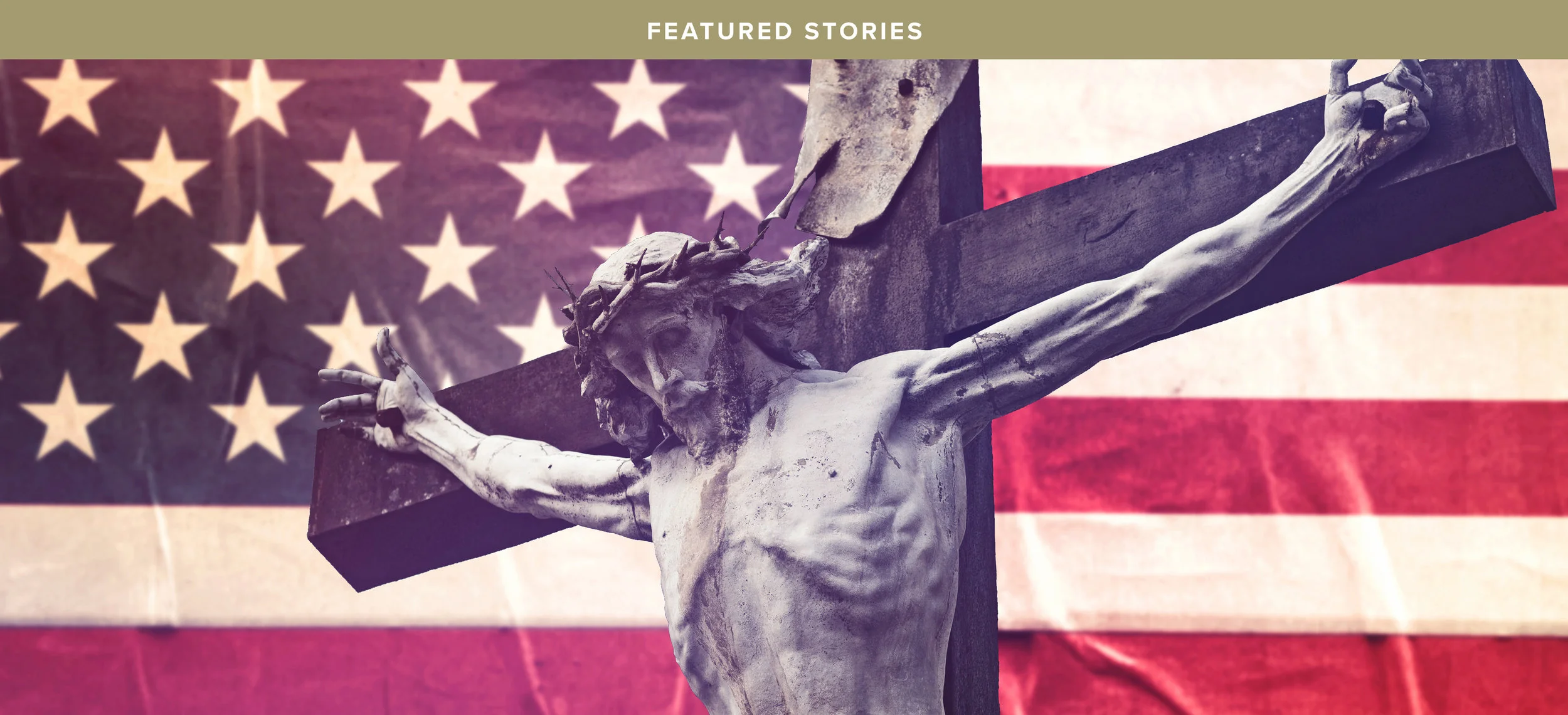Church and State
A question was recently put to me about the complicated issue of the separation of Church and State in America. What is a Catholic supposed to do when the government decrees laws that are utterly contrary to Church teaching?
Let's start with some basics.
In one sense, Scripture gives us a basis for the principle of the separation of Church and State when Jesus says, “Give to Caesar the things that are Caesar's, and to God the things that are God's.” (Matt. 22:21) This indicates that we have distinct obligations to the State and to the Church. It envisions that if we keep both sets of obligations, there should not be a conflict.
In general, our obligations to Ceasar, to the State, are laid out by St. Paul along with the rationale for them:
Let every person be subject to the governing authorities. For there is no authority except from God, and those that exist have been instituted by God. Therefore he who resists the authorities resists what God has appointed, and those who resist will incur judgment. For rulers are not a terror to good conduct, but to bad. Would you have no fear of him who is in authority? Then do what is good, and you will receive his approval, for he is God’s servant for your good. But if you do wrong, be afraid, for he does not bear the sword in vain; he is the servant of God to execute his wrath on the wrongdoer. Therefore one must be subject, not only to avoid God’s wrath but also for the sake of conscience. For the same reason you also pay taxes, for the authorities are ministers of God, attending to this very thing. Pay all of them their dues, taxes to whom taxes are due, revenue to whom revenue is due, respect to whom respect is due, honor to whom honor is due. (Romans 13:1-7)
Also, St. Paul tells us to pray for our political leaders, “for kings and all who are in high positions, that we may lead a quiet and peaceable life, godly and respectful in every way.” (I Tim. 2:2)
Let's just say it would be really helpful if we prayed a lot harder for those who govern us.
But the time may come, and usually has come, when the laws of the State directly conflict the laws of God and, early on in the history of the Church, the apostles made it very clear where our ultimate loyalty lies: “We must obey God rather than men.” (Acts 5:29)
For the most part, we should be able to live peaceably in a society where we are not being hunted down openly and imprisoned or even executed for simply being a professing Christian. The question is, what about the society whose laws and whose culture espouse basic ideas that our hostile to our faith? In other words, what about the society in which we presently live: here marriage and family and life itself are no longer sacred because contraception and abortion and same sex unions are the law of the land? Where the public schools forbid the teaching of our faith and our morals, but support the teaching of materialism and intolerance of our religion dressed up as tolerance of all religions?
At some point just mentioning our objections may cost us. Standing up for our faith might incur penalties small or large, from paying a fine to serving time in jail. We heard about the county clerk who went to jail for not issuing a marriage license to two men. We may suffer injustice because of an unjust law. The strange thing about persecution is that it has always propelled the Church to grow and flourish rather than being crushed and destroyed. The Roman Empire fell. The Roman Church which it persecuted still survives.
St. Paul says, “If possible, so far as it depends on you, live peaceably with all.” (Romans 12:19) The implication is do your best to keep the peace, but when it no longer depends on you to keep it, peace may not be an option. We are all called to be witnesses, but some may be called even to be martyrs (which is actually the Greek word for “witness”). However, this may not be the only option. We have to be prayerful and wise, and we must understand that we may also be called to protect those whom we love and who have been entrusted to our care—our families, our immediate community of believers. We have a responsibility to create a safe enclave. We are still responsible for evangelizing and educating people in the truth, which does not necessarily mean shedding our blood or putting on chains. It may mean finding creative ways to speak the truth even in the context of hostility and danger.
Yes, we need to change our society, but we have to remember that politics seldom provide solutions to our dilemmas. Politics are ephemeral and even the dilemmas are prosaic. As G.K. Chesterton says:
At present we all tend to one mistake; we tend to make politics too important. We tend to forget how huge a part of a man’s life is the same under a Sultan and a Senate, under Nero or St. Louis. Daybreak is a never-ending glory, getting out of bed is a never-ending nuisance; food and friends will be welcomed; work and strangers must be accepted and endured; birds will go bedwards and children won’t, to the end of the last evening.







